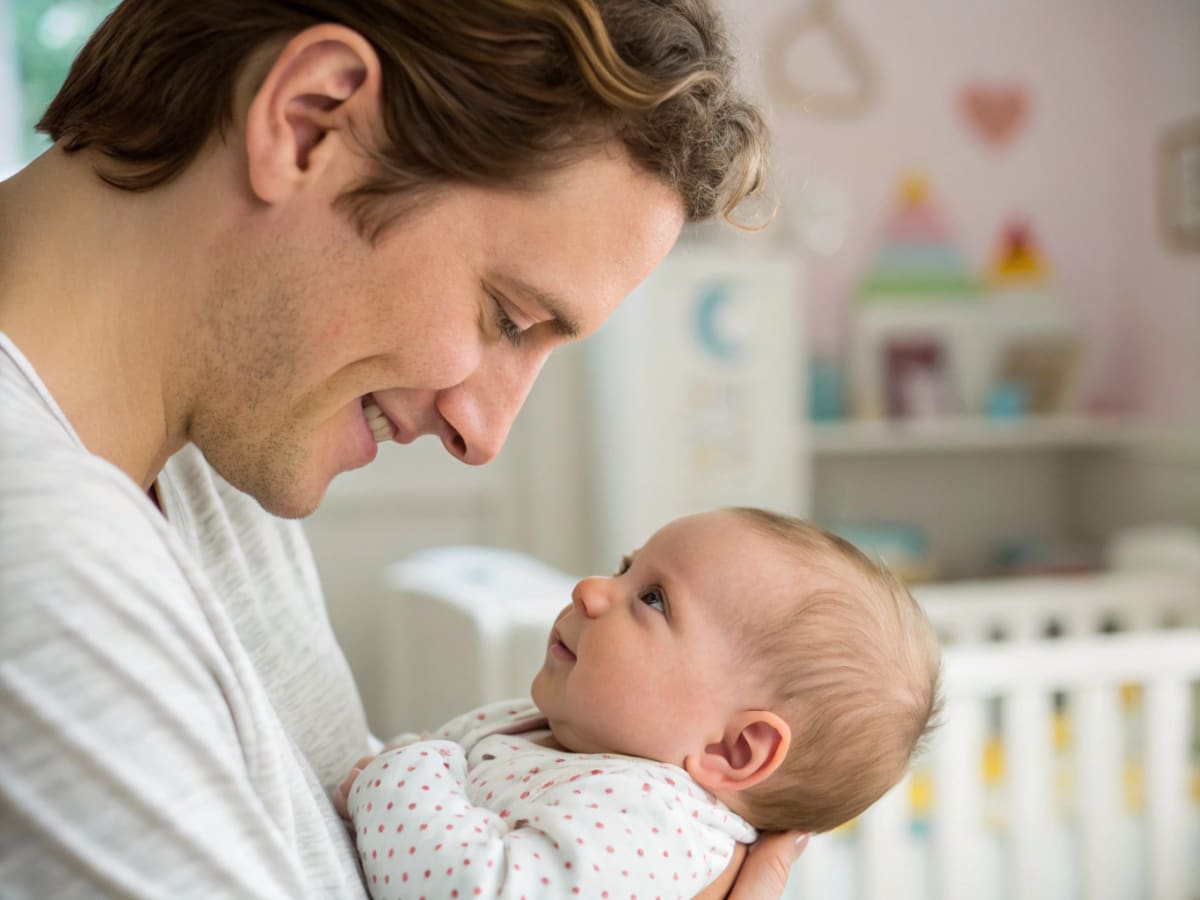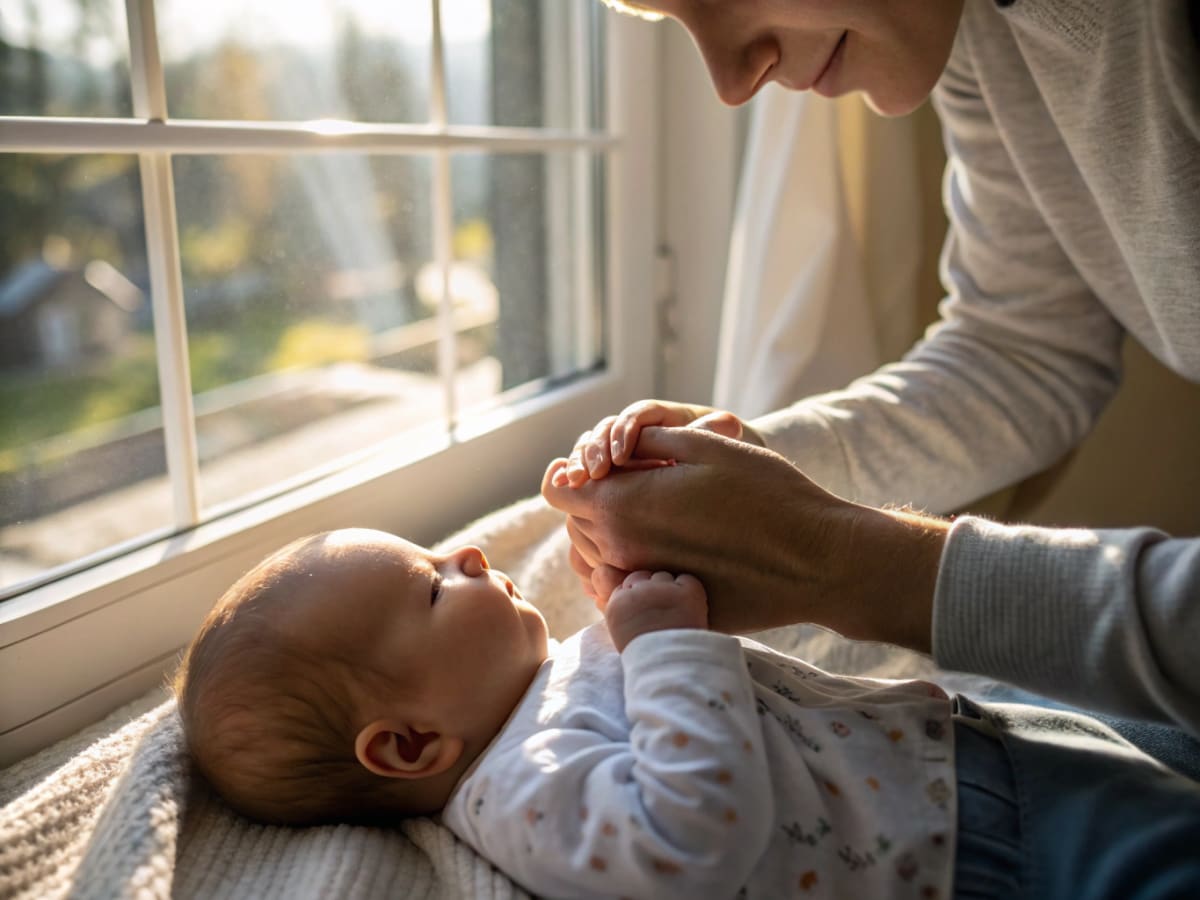
Eye Contact with Your Child: Value Beyond Simple Communication
Have you ever wondered, “When will my baby start making eye contact?” or “Does eye contact really have a significant impact on my child’s development?” The first communication your baby has with the world begins with looking into the eyes of their parents. In a child’s growth, eye contact goes beyond just looking at each other; it becomes an essential step for healthy development. Through this eye contact, a baby starts forming a bond with the parents, exchanging emotions, and taking the first step in understanding the world.
When a baby looks into your eyes, they begin to learn from the parent’s expressions, emotions, and reactions. This is the most crucial form of non-verbal communication before language develops and plays a key role in nurturing social skills and empathy. Consistent eye contact from an early age helps the baby feel secure with the parent and develops a positive perception of the world. Thus, eye contact is an initial point of significant interaction that impacts a child’s emotional stability, as well as cognitive and social development. These brief moments of eye contact between parent and child strengthen the child’s inner self and prepare them to explore the world.
How Does Eye Contact Affect the Healthy Growth of a Baby?
Eye contact with a baby goes beyond simple expressions of affection; it is closely connected to brain development. Around two months old, babies start recognizing faces and tend to make eye contact with parents. This eye contact significantly influences a baby’s cognitive development. Through their eyes, babies observe their parents’ expressions, recognize various emotions, and begin to learn the rules of the world. For example, they learn to associate a smile with joy and a frown with discomfort. This process lays the foundation for a baby’s emotional regulation abilities and the development of social skills.
Moreover, eye contact plays a positive role in language development. When parents talk to the baby while making eye contact, the baby tries to understand the meaning of language by comprehensively grasping the intensity of sounds, intonation, and expressions. This becomes an essential motivation as the baby begins babbling and gradually acquiring words. Various studies have shown that babies with ample eye contact experience with parents tend to have faster language development and are more proactive in social interactions. The eyes are a gateway for the baby to the world, absorbing much-needed information for learning and growth through this eye contact. Eye contact actively stimulates the way a baby’s brain processes and stores information, providing significant stimulation that can positively impact growth and development.

How to Start Eye Contact That Deepens the Bond Between Parent and Child
Deepening the bond with your baby through eye contact is not as difficult as it may seem. The most important aspect is for the parent to focus and respond appropriately to the baby. Try actively making eye contact when the baby is awake, especially during feeding, changing diapers, or playing. By gently gazing into the baby’s face and eyes with a smile or speaking softly, the baby can clearly feel the parent’s love and attention. If the baby turns away or avoids looking, give them space and wait patiently. Babies might prefer small bursts of focused eye contact rather than prolonged sessions.
As the baby grows, eye contact evolves into more varied forms. Using playtime to encourage eye contact is also a good approach. Engage the baby with peek-a-boo games, baby massages, or songs to naturally draw their gaze and increase the time spent making eye contact. Respond positively to the baby’s reactions, such as saying, “We made eye contact!” or “You smiled at mommy!” to make them feel valued and encouraged for more interaction. Such consistent efforts help the baby trust the parents and develop a positive attachment to the world.
Important Observations and MOM-i BabyCam for Baby’s Eye Contact Development
The development of a baby’s eye contact requires careful observation by the parents. Usually, from two months old, babies begin making eye contact with parents, but each child might develop at their own pace. If by three months, the baby rarely makes eye contact or displays atypical responses to sounds or movements, it would be wise to consult a specialist for diagnosis. Many parents tirelessly monitor whether their baby sleeps well, is safe from sudden infant death risks, and how they respond to eye contact and their surroundings for the sake of the child’s healthy growth. Parents can feel even more anxious when starting separate sleep arrangements or leaving the baby alone while asleep.
To alleviate these concerns and support the baby’s safe and healthy growth, the MOM-i (mom-i) BabyCam is here to help. The MOM-i BabyCam is a baby AI camera that captures even the slightest movements and sounds in real time, with a focus on detecting sudden infant deaths and sleep management. It enhances convenience over existing baby IP cameras with clear real-time video quality and easy installation, supporting sleep management for weary parents.
“Previous baby cams were frustrating due to unstable connections or poor quality, but the MOM-i BabyCam exceeded expectations with its smooth and reliable operation. Now, I can check whether the baby sleeps well even at night with assurance.”
Beyond just monitoring the baby, the MOM-i BabyCam, as an infant healthcare camera, analyzes the baby’s sleep patterns and detects abnormal movements, providing alerts to reduce the parenting burden in daily life. Even during a busy day, it serves as a reliable partner for securely observing and recording your baby’s eye contact moments and health status.
Seize this opportunity to have eye contact time with your baby to better understand and bond deeply with each other. Engage with the pure world reflected in your baby’s eyes and fill each day with special memories. The MOM-i BabyCam is a steadfast partner to relieve parental anxieties and cherish precious moments with your baby.
Eye contact is a valuable starting point for strengthening the emotional bond between parent and child. From repeated, small exchanges of glances every day, the child learns about the world, and the parent gains a deeper understanding of the child’s development. As one of the parenting tips, the MOM-i BabyCam helps ensure these moments are not missed, serving as a warm technology that maintains the connection between parent and child. If you’re curious about its features, feel free to inquire anytime.
Your First Choice for Your Precious Baby, MOM-i BabyCam!
Stay reassured with 24/7 real-time monitoring anytime, anywhere~
The bed camera equipped with sensors
is the most dependable eye watching over your child’s day.
Mail inquiry: momi@emtake.com